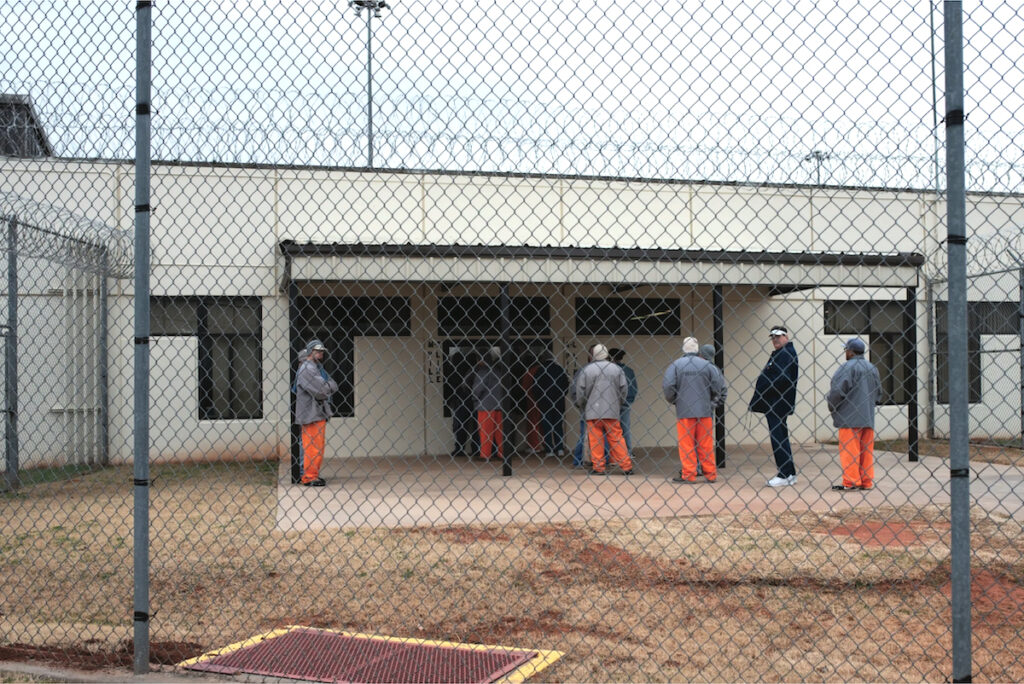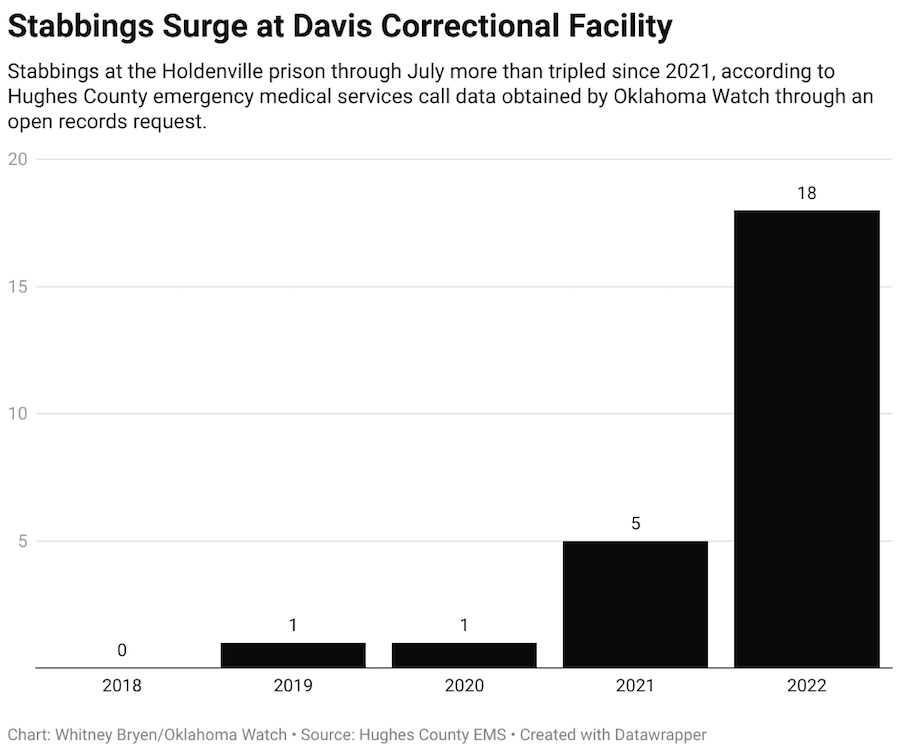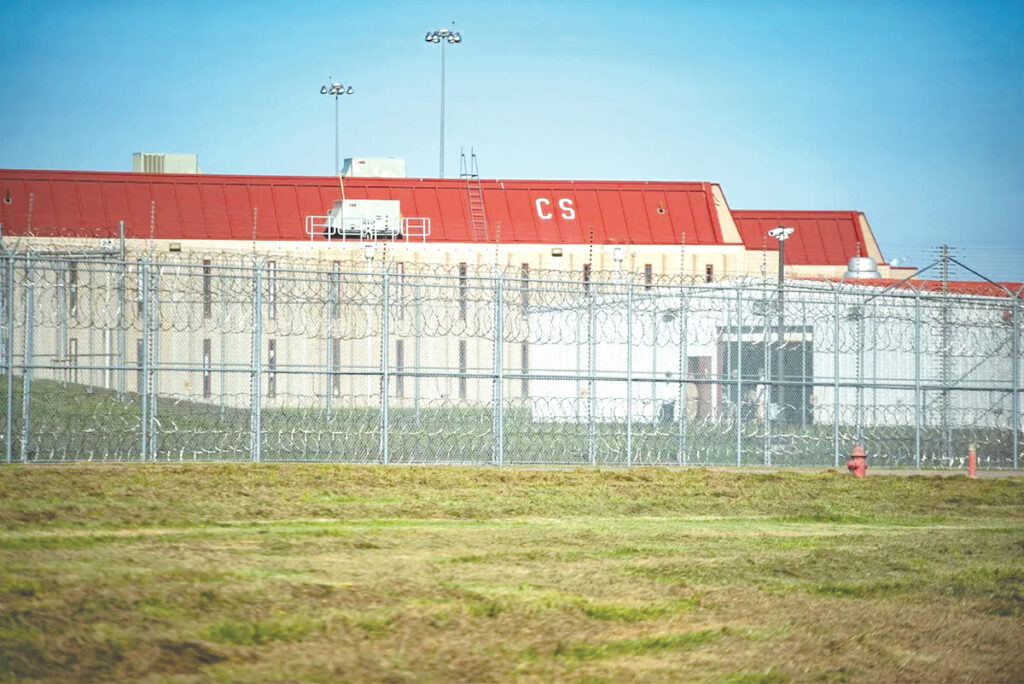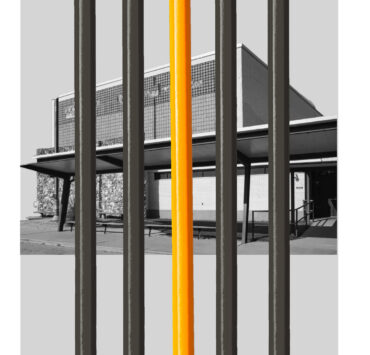At least 18 people have been stabbed — three fatally — in one private prison in southeast Oklahoma this year, emergency records show.
A deadly July 31 attack on corrections officer Alan Jay Hershberger is part of a dramatic increase in stabbings at Davis Correctional Facility, which incarcerates high-risk, violent offenders.
Stabbings at the Holdenville prison through July more than tripled since 2021, according to Hughes County emergency medical services call data obtained by Oklahoma Watch through an open records request. The data includes stabbings where the victim was transported to the hospital by prison or EMS staff.
The victims include a 29-year-old prisoner fatally stabbed in the neck on March 24 and a 35-year-old prisoner who died after being stabbed in the abdomen on May 31.

Hershberger, 61, was attacked from behind by inmate Gregory Thompson, 49, using a homemade weapon according to a news release. He was the first state correction officer killed on duty since 2000.
The 1,600-bed prison is owned by the world’s largest private prison company, CoreCivic, which operates more than 100 prisons in the U.S. CoreCivic is paid $50 to $63 daily per prisoner depending on security classification, according to its state contract, which is up for renewal in July 2023. Davis can incarcerate up to 1,314 medium- and 360 maximum-security prisoners.
Oklahoma prisons have been plagued by staffing shortages and operational inefficiencies, according to a June report by a state legislative oversight committee. State prisons are regularly staffed below 50% of the recommended level, the Legislative Office of Fiscal Transparency reported in its operational assessment, which did not include private prisons.
Davis currently lists 20 staff vacancies, including openings for case managers, corrections officers, unit managers and assistant shift supervisors.
The private prison’s persistent staffing shortages and resulting prisoner lockdowns are evident in weekly reports, said Bobby Cleveland, a former state legislator who represents corrections employees.
“Every week I look at it, it says Davis (locked down) — not enough staff,” said Cleveland, executive director of Oklahoma Corrections Professionals. “They’re (locking) down constantly because they don’t have enough staff.”
Former Davis correctional officer Jamie Sasnett said weekend staffing shortages regularly kept prisoners in their cells during his three years on the job.
“On weekdays they might be able to get out if a unit manager, counselor, or case manager comes in,” said Sasnett, who added that he often guarded 120 prisoners by himself and up to 240 on occasion.


“It sends a shiver down your spine knowing that you are now the only thing between 120 inmates and that door. And the only thing that you have to protect yourself is a can of spray and a radio,” he added.
CoreCivic is working to raise staffing levels, boost incentives and retain quality staff, said company spokesman Matthew Davio.
Neither CoreCivic nor state correction officials offered explanations for the increase in stabbings at Davis. The corrections department conducts regular audits of CoreCivic and is awaiting the results of an investigation into Hershberger’s death before taking action, a DOC spokesman wrote in a statement emailed to Oklahoma Watch.
Sasnett said superiors twice ignored his warnings that inmates were making weapons. The first time, he noticed windows covered and a strange noise coming from inside a cell.
“This is an inmate that is known for — on more than one occasion — making, having, and supplying weapons,” he said.
Sasnett, 37, of Lexington, said he resigned in the middle of a shift last fall after making a similar report.
“We’ve never ever had this many stabbings before, and with different types of shanks. We’ve been told there’s been plastic shanks and metal shanks, serrated and smooth,” said Christopher Miller, who supervises Hughes County emergency medical services. “One was almost 12- inches long. How are you walking around with a 12-inch shank and not getting caught? Unless you just don’t have enough staff to be looking for that? How do you break something that much and nobody notices?”
Identifying the weapon is critical to providing stabbing victims with emergency care, Miller said.
Kendra Kregel, a 49-year-old paralegal from Tulsa, said her fiance is a prisoner at Davis, having been transferred there three months ago. He has faced violence ever since, she said, moving cells three times for safety reasons and having a knife pulled on him at least once.
“I fear for his safety every single day. It’s a big stress in my life … the stabbings at Davis are very concerning,” Kregel said. “They need to get staffing up to par because they’re severely understaffed.”
Ashlynd Huffman covers criminal justice for Oklahoma Watch. Contact her at ahuffman@oklahomawatch.org and 405-240-6359. Follow her at @AshlyndHuffman.









